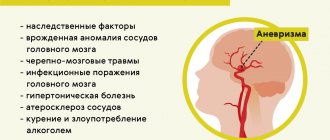Emotional stress is a set of emotional experiences that reduce the emotional background and motivational sphere of the individual. The state of emotional stress is accompanied by a feeling of a person’s helplessness in the face of life’s circumstances, one’s own uselessness, a feeling of loss of the meaning of life or the purpose of activity. The work is done formally, interest in others is supported by social requirements, apathy gradually begins to fill all areas of life. In the affective sphere, there is irritation, suspicion and nervousness, and various personal accentuations may become more active. The feeling of causeless anxiety and restlessness increases.
Fatigue increases, which does not go away either after rest or after a night's sleep, but increases even with minimal physical activity. Appetite may disappear, insomnia may occur, and a desire to relieve nervousness and relax with the help of alcohol and drugs may appear. When using various stimulants (even coffee), their effect is not pronounced, and sometimes the opposite.
Typically, this condition is caused by long-term suppression of negative feelings or problems, but when a person encounters this, the adjustment may require quite serious adjustments. In many cases, prolonged nervous tension leads to the development of stress, with all the ensuing consequences. If you ignore this symptomatology, then various neurasthenic disorders develop, the therapy of which also includes drug correction of the condition.
Timely relief of emotional stress helps to avoid serious consequences, but it is also worth taking care of preventive methods to prevent the accumulation of tension. Those who regularly have the opportunity to share their experiences with loved ones or a psychologist are less likely to accumulate a destructive amount of stress. Some of your own personality traits contribute to the accumulation of emotions inside - this is the constant need to control everything, the fear of trusting the flow of events, the inability to adapt to changing conditions, the desire to change others, and so on. Such tendencies take a lot of energy and force a person to constantly be in an active and mobilized internal state. It is worth constantly looking for something new in the ways of your own development.
The human psyche is designed in such a way that it is in a normal state only through constant improvement. During long periods of stability, degradation begins and emotional tension accumulates, which is associated not so much with the external situation and conservation of emotions, but with irritation from the lack of movement.
Causes of emotional stress
The state of emotional tension in most cases is caused by a person’s inability to express his emotional and sensory experiences. Usually this concerns the processing and outburst of negative emotions, which have the most destructive effect on the psyche. It is in expressing such feelings that many people have difficulty. This is due to social norms of behavior, prohibitions on expressing aggressiveness and discontent. Many people are taught from childhood that they should not be angry with certain people or resist certain actions. Cultivating willpower and character leads to the creation of an outwardly positive and desirable image - a person. Who does not cry, does not get angry, does not take offense, who is able to forgive everything and enjoys what is unacceptable. The problem is that simply hiding such experiences does not disappear anywhere and begins to destroy not only the psyche, but also the physical health of a person. Instead of refusing to acknowledge certain feelings, it is necessary to teach children to express them in a constructive way, without holding them inside.
In addition to such internal factors that are absorbed at a very early age, there is also an external influence. Thus, stressful situations and constant discomfort caused by external events lead to emotional tension. This includes an unloved job, a boring husband, annoying children, noisy neighbors, construction outside the window, unfulfilled dreams. Many of these factors are not even consciously noted by a person when he tries to understand the causes of his own irritation, but they continue to influence. And if you can change your way of reacting and expressing emotions in a few months, then some external circumstances are beyond our influence.
The difference between our idea of how the world should be and what manifestations of it we encounter is the most powerful factor provoking emotional stress. These differences can arise on the basis of objective or fictitious differences. So, it is quite logical to expect support and attention from a loved one, and when betrayal or ridicule occurs instead, tension arises. But these can also be illusions that cause increasingly greater claims to the world - for example, the desire for everyone to have lunch at a certain time or to understand your words the first time.
Additional factors that make a person more susceptible to events and lead to overstrain are increased fatigue, sleep deprivation, and any dissatisfaction. The physical state plays a crucial role in the regulation of emotions, therefore, if there is a slight emotional shock with a balanced feeling of the body, it can go unnoticed. Conversely, a passing remark from a stranger can lead to a serious emotional breakdown due to lack of sleep and hunger.
Ways to quickly relieve psycho-emotional and muscle tension
“The human mind is such that it can make hell heavenly and heaven hell”
D. Milton, “Paradise Lost”
Emotional tension is often confused with stress, although these concepts should be separated. We can say that emotional tension is the cause, but the state of stress is the consequence. Emotions, undoubtedly, decorate our lives and make it more complete. Joy, love, surprise, gratitude - all these are emotions that we experience constantly. It’s good if a person knows how to throw out his emotions from time to time. Someone goes to a psychologist to talk about their difficulties, about what is “boiling.” Someone shares their problems, fears and grievances with friends and loved ones. But how can you cope with tension if you are left alone with yourself? I offer 10 express methods for relieving mental stress, accessible to everyone.
- Deep breathing exercises
Inhale slowly and deeply through your nose, filling your stomach and then your chest with air. Slowly count to four 1-2-3-4. Go at your own pace. Exhale through your mouth as slowly as possible, pursing your lips as if you are about to whistle. When your lungs feel empty, count to four again. Start the exercise again and repeat 3-4 times.
- Quick relaxation
In a stressful situation, the ability to quickly relax. At the beginning, you will need to apply the previous method of relieving emotional stress, deep breathing exercises two or three times, counting the inhalation and exhalation to yourself... After achieving general relaxation, you need to feel all the muscles of your body. Focus on your facial expression and body position. If you feel excessive muscle tension in any part of the body (for example, in the right arm), then tense and then relax various muscle groups in this part of the body (tighten and relax the biceps, forearm muscles, etc.). Try to feel your body and how it relaxes. This technique can also be practiced in an imaginary stressful situation. Repeat the exercise once a week.
- Concentration
For this exercise, it is good to concentrate on the things that surround you at the moment. Look around and carefully examine the room you are in. Concentrate on broadcasting the same color, for example, remember everything is white. Fix the color white with the association of white milk, white clouds, etc. Afterwards, collect all the items one by one, stopping at each item separately. Exercise will help you take your mind off emotional stress. Attention will be diverted to the rational perception of the environment.
- A change of scenery
A change of environment is a good help to relieve stress. If you are in a bad mood, feel tense, or the situation is depressing, then leave the room where acute stress occurred. You can just go outside, if you can, take a walk in the park, where you can be alone with your thoughts. Look around, see what surrounds you, observe nature. If it's the weekend, then be sure to go out into nature (when the weather permits), go to the movies, meet friends, do something unusual.
Be sure to plan an unforgettable trip on your vacation. The trip will allow you to meet new people and immerse yourself in a new culture. Unfamiliar places allow you to see the world around you in all its glory. Be sure to take a notepad and camera with you. Observe everything new and write down everything that comes to mind. New impressions will prolong the positive emotions from the trip for a long time.
- Relaxation
Lie on your back. Concentrate on your breathing. Slowly relax your body. Begin to inhale slowly through your nose. Fill the lower chest, then the middle and upper chest and lungs. Remember to do this slowly. Hold your breath for a second or two. Then you need to calmly and easily release the air. Wait a few seconds and repeat the exercise. Imagine that you are in a calm situation, surrounded by palm trees and a warm, gentle ocean. You can continue this breathing technique as long as you like until you feel sleepy.
- Abstraction
Engage in some kind of activity - no matter what: start washing clothes, washing dishes or cleaning. It doesn't matter, any activity you choose will help you take your mind off things.
- Music
Choose your favorite quiet, soothing music. Make yourself comfortable and listen in a relaxed environment.
- Arithmetic
Calculate how many days are left until the significant days in your life. For example, how many days are left until your birthday, until the significant dates in your life that you are waiting for. Good memories, when they were, and how much has passed since then.
- Communication
Talk about an abstract topic with anyone you know. He may be next to you, or you can call him on the phone. This will give you a distraction at this stage.
- Warm shower
Warm water has a relaxing effect on the muscles, thereby relieving tension. Water jets also promote relaxation and relaxation through a gentle massaging effect. The shower can also be contrasting, it all depends on your personal preferences.
All these recommendations will help you quickly get rid of psycho-emotional stress and allow you to look at the world from a different perspective. Don't let your emotions rule your life. Remember that it depends only on you whether your life will be a continuous holiday or a series of failures.
List of used literature:
When preparing the article, data from Internet resources was used.
Timoshenko G., Leonenko E., “Working with the body in psychotherapy.”
Prepared by psychotherapist D.A. Ignatovich,
medical and psychological department
How to relieve emotional stress
Relieving emotional stress requires serious internal and external work, a subtle sense of your needs and capabilities, as well as patience, since it is impossible to remove in a couple of minutes what has been accumulating for months. Engage in restructuring your own life and reducing stress in everyday situations. The strategy of small tasks is perfect for this - when one large task is divided into several components. A person’s perception is structured in such a way that if the plan is global (for example, to buy an apartment), then such a goal will not cause anything but panic, and postponing implementation will cause an increase in internal tension. You should set many small tasks that will ultimately lead to what you want. They can be performed periodically and not feel any pressure arising.
Reduce the level of uncertainty as much as possible - demand deadlines from people, look for detailed information, compare with similar projects. The greater your awareness of the real state of affairs, the smaller the difference between your expectations and reality. In addition, this allows you to optimally plan your own time and processes. Think through possible scenarios and your actions in them. This will save you from empty fantasizing, increased anxiety and panicky anticipation. When the situation does not turn into the most positive option chosen.
If you notice an increased level of anxiety in yourself, which is not based on objective reasons, then it is worth working with your conditions. To do this, you can compare the emerging situation with similar, but already successfully ended, and what is now perceived as a tragedy is good to mentally put next to really bad things (for example, excessive worries about possible criticism of your report can be compared with the illness of a loved one - the level of anxiety should fall ). There is also the opposite strategy - bringing the significance and importance of the experienced situation to the point of absurdity. By spinning the impact of your failure on a presentation in your head to the point where the sun may go out and the entire universe will perish, you will notice an emotional change in perception.
Increasing physical activity is a great way to process many emotions. Moreover, the type of activity can be selected in relation to the negative emotions that arise. If it’s fear, then start running; if it’s anger, sign up for boxing; increased irritability – go to the pool. You also need to listen to your own body - if you want to stretch, don’t force yourself to lift the barbell. In the process of sports and physical activity, not only emotions are processed, a surge of excess adrenaline occurs, but also positive hormones are produced, which stabilizes the emotional state.
If you notice growing emotional tension, you can reduce it right at this moment using breathing techniques. This can be exercises from yoga or vibration, simply alternating deep breaths and sharp exhalations - there is no clear recipe, but it’s worth trying. However, it definitely helps to shift attention from the thought process to the breathing process.
To release accumulated emotions, you can look for various optimal ways for this that will not harm people and relationships; it is good that this process takes place in the presence of a psychologist. You can independently express your emotions through sports, dancing, singing, drawing (and even coloring), and modeling. All types of creativity are great as a way to express your inner state, and even in the form of art.
Find activities that bring you relaxation, work on allowing more spontaneity into your life and finding reasons to be happy in every moment. Strive to reduce the amount of control you have. Reduce it only to the necessary things, while not touching other people's lives and beliefs. The fewer things you need to keep in your field of vision, the more moments for relaxation, and the world will not collapse without your intervention, but will rather breathe more freely and easier, just like you.
Reviews and comments
You can express your opinion about the article, relaxation exercises, as well as share your own knowledge on the topic and experience, using the comment form.
We also recommend reading:
- Storytelling
- How to develop immunity against stress
- How to sleep and relax more
- Methods of mental self-regulation
- Stress Diary
- Anger management: a selection of useful materials
- A little about yoga for the face
- Breathing and thinking: a way to calm down in a stressful situation
- Systematic desensitization method to combat fears
- 10 Popular Exercises to Relieve Stress
- How to learn to relax: effective relaxation techniques
Key words:1Psychoregulation











